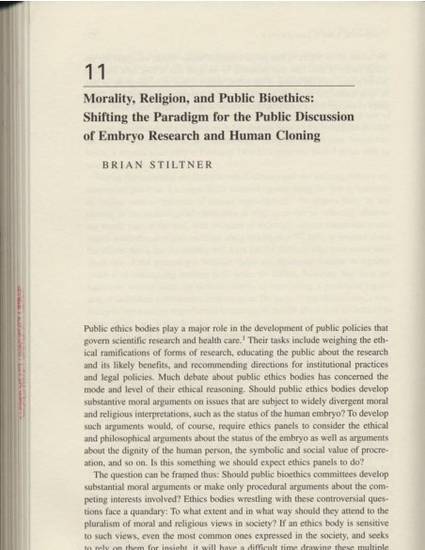
Public ethics bodies play a major role in the development of public policies that govern scientific research and health care.' Their tasks include weighing the ethical ramifications of forms of research, educating the public about the research and its likely benefits, and recommending directions for institutional practices and legal policies. Much debate about public ethics bodies has concerned the mode and level of their ethical reasoning. Should public ethics bodies develop substantive moral arguments on issues that are subject to widely divergent moral and religious interpretations, such as the status of the human embryo? To develop such arguments would, of course, require ethics panels to consider the ethical and philosophical arguments about the status of the embryo as well as arguments about the dignity of the human person, the symbolic and social value of procreation, and so on. Is this something we should expect ethics panels to do?
Stiltner, B. (2001). Morality, religion, and public bioethics: Shifting the paradigm for the public discussion of embryo research and human cloning. In P. Lauritzen (Ed.), Cloning and the future of human embryo research. Oxford University Press.

ISBN 9780195128581